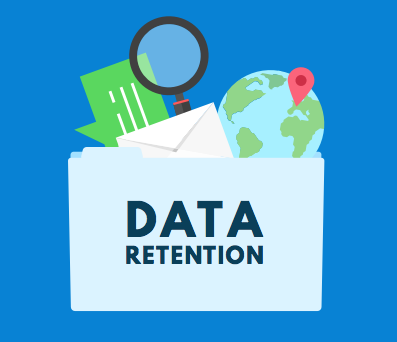What is Data Retention?
Data retention is the continued storage of an organization’s data for compliance or business reasons. An organization may retain data for several different reasons. One of the biggest reasons that organizations retain their data is to comply with state and federal regulations. Data retention can be overwhelming at times, so we’ve put together some best practices to keep in mind!

Data Retention Best Practices
There are various features and capabilities of SCCM that enterprises may find beneficial and useful. A few notable features include patch management, operating system deployment, network protection, remote control, and inventory for software and hardware.
- When deciding what types of data to keep, always keep data that is required by law, contracts, and other essential business documents. It’s also a good idea to keep data that helps you understand your customers.
- When deciding on the appropriate data retention time period, one of your first steps should be to determine the minimum legal requirement for retaining that data. These laws vary widely among industries, so be sure to research which federal and state laws apply to your organization.
- In some cases, it may be beneficial to hold on to data even if it is not required by law or if the data retention time period has passed. You may be able to gain business insights by looking at historical data. Analyzing and reviewing historical data can help organizations identify long-term trends, allow you to look back at certain incidents, and assist you in planning for the future.
- Another factor that plays into data retention is the cost. When deciding how long to keep data, you have to weigh the cost of data storage vs. the cost to obtain that data.
- Choosing where to store your data is an important decision as well. Some organizations are turning to the cloud for their data storage needs, while others like to keep data in their own data center. Learn more about the benefits of these options in The Cloud vs. Data Center.
- Always make sure to back up your data, and regularly test your backups to ensure they are working properly.
Data Retention Policies
Every organization should have a data retention policy in place to ensure their data is organized, protected, and retained for the required amount of time. Having a defined policy in place will help your organization avoid penalties from breaking compliance. In order to create an effective data retention policy, your organization should address the following questions: What data should be stored/archived? Where should it be stored? How long should it be stored? What happens to the data after the retention period is over?
Your policy should highlight how data should be formatted, what storage devices or system to use, and how long the data should be kept according to operational or regulatory requirements. When your organization no longer needs data, you should dispose of it properly to free up space for more important data.
How RTI Can Help
With years of experience assisting a wide variety of industries with their data needs, RTI understands the complexities of data retention and compliance. We can help you create a data retention policy specific to your industry, so you can know with confidence what data to keep and for how long. Our experts can help protect data across your infrastructure and ensure you’re achieving security and compliance. Learn more about our data solutions!
Date Posted: 5/10/18
Date Last Updated: 6/4/19
By: RTI Marketing Team




